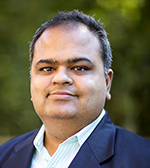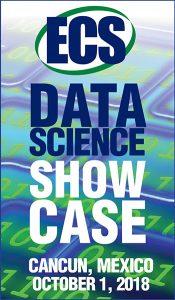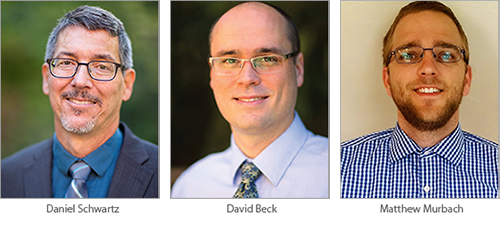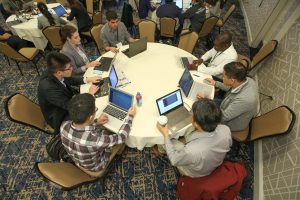2018 Class of Fellows
Source: https://www.electrochem.org/234/fellows
 Venkat R. Subramanian received his Bachelor of Technology degree in chemical and electrochemical engineering from the Central Electrochemical Research Institute, Karaikudi, India, in 1997 and his PhD degree in chemical engineering from the University of South Carolina, Columbia, SC in 2001. He is currently a Washington Research Foundation Innovation Professor of Chemical Engineering & Clean Energy and an adjunct professor of Electrical Engineering, at the University of Washington, Seattle. He holds a joint appointment at Pacific Northwest National Laboratory as a Chief Scientist.
Venkat R. Subramanian received his Bachelor of Technology degree in chemical and electrochemical engineering from the Central Electrochemical Research Institute, Karaikudi, India, in 1997 and his PhD degree in chemical engineering from the University of South Carolina, Columbia, SC in 2001. He is currently a Washington Research Foundation Innovation Professor of Chemical Engineering & Clean Energy and an adjunct professor of Electrical Engineering, at the University of Washington, Seattle. He holds a joint appointment at Pacific Northwest National Laboratory as a Chief Scientist.
His research interests include multiscale simulation of electrochemical systems, electrochemical engineering, energy-systems engineering, real time state-of-charge and state-of-health estimation of lithium-ion batteries, model-based battery management systems for electric transportation, and renewable microgrids and application of nonlinear model predictive control methods.
Subramanian’s group has the fastest algorithm reported in the literature for the simulation of battery models.
Subramanian is a past elected chair of the IE&EE division of The Electrochemical Society, received the student research award from the ECS battery division and the ECS IE&EE division student achievement award for his doctoral research. He was awarded the Dean’s award for excellence in graduate study in 2001 for his doctoral research. He acknowledges the influence of his undergraduate and graduate advisors/teachers, his past and current students, and many researchers/well-wishers in the ECS community.


